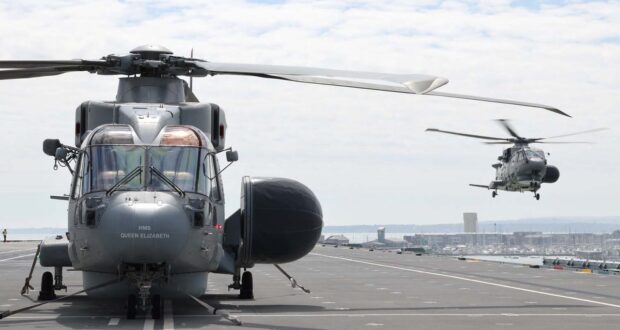30 May, 2022
The House of Commons Defence Committee has published the HSC’s evidence to the committee’s inquiry into Aviation Procurement across the UK Armed Forces. The inquiry comes in the wake of last year’s publication of the UK Government’s Integrated Review and Defence Command Paper.
Our evidence proposes that:
-
The Integrated Review (IR) and Defence Command Paper (DCP) both identify Russia as the leading threat to the UK, and the outcome of the Russia Ukraine War will have a significant influence on the UK’s military aviation requirements.
-
The exact post-conflict landscape is difficult to predict, but it is likely that Russia will be substantially conventionally weakened and that NATO will see its defensive position improve as a result of the war.
-
Lessons already apparent from the Ukraine conflict include the value of a forward-deployable air combat fleet to provide reassurance to allies, the importance of strategic air transport, and the value of traditional crewed intelligence, surveillance, target acquisition, and reconnaissance (ISTAR) platforms.
-
The UK’s decision to cut its Typhoon fleet will reduce air combat mass at least in the short term, which undermines the stated priorities of the IR and DCP. This will be further intensified should the F-35B programme be halted before adequate numbers have been acquired. However, the purchase of the new fleet of Apache attack helicopters is in keeping with both the IR and DCP and a realistic appraisal of their utility.
-
The cuts to RAF air mobility assets, most notably the entire C-130J fleet, will directly undermine the approaches outlined in the IR and DCP – most notably the pivot towards “persistent engagement”. It cannot be expected that allies will be able to make up the shortfall in airlift capability.
-
The early retirement of the E-3D Sentry aircraft has left the RAF with a critical capability gap at one of the most important moments for European security since World War Two, and the procurement of only three E-7A Wedgetail aircraft reflects neither the tasking that might reasonably be envisaged under the IR/DCP nor the technical maturity of alternative systems that might supplement them.
-
The Poseidon MRA1 fleet offers a cutting-edge capability in the maritime realm and the benefits of commonality with allies but is numerically weak in relation to the threats faced.
-
Similarly, the Royal Navy’s Merlin Mk.2 helicopter force is stretched to provide adequate anti-submarine warfare coverage while also supplying airborne early warning and control (AEW&C) under the Crowsnest project
HSC Deputy Director and Security and Defence lead, Dr Rowan Allport, said:
“While the Integrated Review and Defence Command Paper offer compelling visions, the conflict in Ukraine has already offered lessons that need to be incorporated into future procurement decisions against the backdrop of a drastically changed the European security landscape. It is also clear that a number of procurement decisions the Government has taken go against its stated policy priorities – this must be chiefly put down to a failure to provide adequate funding”.
Image: Merlin Mk2s land onboard HMS Queen Elizabeth; the Crowsnest radar is mounted on the side of the helicopter (Source: Royal Navy via Open Government Licences V.3)
 Human Security Centre Human Rights and International Security Research
Human Security Centre Human Rights and International Security Research




